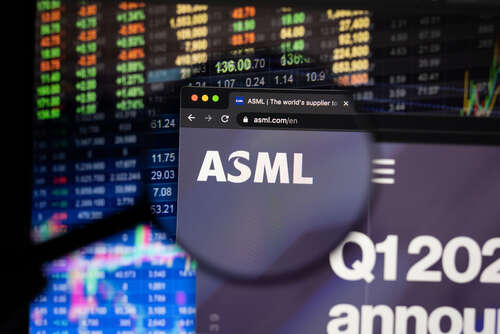
Export restrictions were imposed on ASML products because of fears that they would be used in Chinese military applications, a note by the Dutch trade minister has revealed. According to Reuters, which broke the story, the Dutch government feared that lithography systems built by ASML would eventually find their way into China’s high-value weapons systems.
“China focuses on foreign expertise, including Dutch expertise in the field of lithography, to promote self-sufficiency in its military-technical development,” said Geoffrey van Leeuwen in a note originally written on 5 February, who continued that any decision by the Dutch government to review export licensing decisions will weigh “the risk of undesirable end use.”

ASML China exports for “mature technology” previously strong
Founded in 1984 as a joint venture of Philips and ASM International, ASML – or, ‘Advanced Semiconductor Materials Lithography’ – is the world’s only manufacturer of the extreme ultraviolet (EUV) photolithography machines used in the manufacturing of semiconductors. As such, these machines are highly prized by semiconductor giants like TSMC, Samsung and Intel.
None of its most advanced equipment, however, including its extreme ultraviolet (EUV) machines, has ended up in China thanks to a 2019 ban on exports by the Dutch government. However, ASML continued to reap bumper sales from the export of its Deep Ultraviolet (DUV) machines to Chinese buyers, equipment that the Dutch manufacturer has previously described as “mature technology.” These transactions accounted for 46% of ASML’s sales in the third quarter of 2023.
In 2023, the Netherlands came under pressure from the US to restrict this trade, too, though its success in doing so has been mixed. According to Bloomberg, the Dutch government issued several export licenses to ASML allowing it to sell equipment in China, licenses that critics contend allowed the Chinese semiconductor industry to effectively stock up on valuable lithography equipment before more severe US sanctions restricted their supply even further.
Netherlands accedes to US semiconductor policy towards China
Writing in response to questions from Dutch parliamentarian Femke Zeedijk asking why export licenses for advanced semiconductor equipment had been granted and swiftly retracted by the government, Van Leeuwen’s note merely confirmed that licenses had been issued from September 2023 onwards and that 20 new requests were expected this year. Last month, the Dutch government confirmed that it had summarily revoked at least one such license.
Van Leeuwen’s comments echo those of his predecessor in the role of trade minister, Liesje Schreinemacher, who proved equally discomfited at the possibility of ASML exports inadvertently boosting the performance of Chinese missiles. Throughout 2023, the Dutch government expressed concerns about China’s escalating rhetoric towards its neighbour, Taiwan and the likelihood that the former would trigger a major conflict in the region. Consequently, said Schreinemacher in June of that year, the decision by The Hague to impose restrictions on the export of advanced semiconductor equipment was “taken…in the interests of our national security.”






